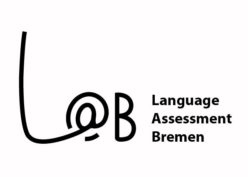Journeys into higher education: The role of language and other factors for the academic integration of refugees
supervised by Claudia Harsch at the University of Bremen
Mobility in a globalized world is a complex and multifaceted topic – people migrate for professional, educational, economical, family or humanitarian purposes. In all cases, international migration closely relates to questions of regional integration. Within the complex issue of integration, the role of language learning and language proficiency is often considered to be a crucial one. The PhD-project focuses on a specific detail within this big picture: It investigates the (language learning) journey of refugees into and through higher education in Bremen and aims to shed light on the role language and other factors play for social and academic integration within this context. The PhD is part of a research project carried out within the department of Research into Language Learning and Teaching at the University of Bremen, under the supervision of Prof. Dr. Claudia Harsch. The study is financially supported by the Central Research Development Fund of the University of Bremen.
Within this longitudinal study, about 200 refugees are accompanied during a language programme preparing them linguistically for higher education. The language programme is part of a pre-study course (HERE-Studies) preparing refugees for academic studies in Bremen and consists of an intensive language course (Goethe-Institut Bremen) and weekly tutorials to foster self-study skills (Foreign Languages Centre for the Universities in Bremen); it concludes with a standardized C1-university entrance exam. The first cohort of participants (~18) is also accompanied through their first year in academia.
Following a mixed-method approach, we mainly address the following research questions:
1) What language learning pathways do participants take when preparing for academic studies? What learning gains can be observed throughout the programme (via pre/post tests and achievement tests)?
(2) How do participants of the language programme and their language teachers/tutors perceive their linguistic preparedness for academic requirements?
(3) How do students (former participants) cope throughout their first academic year with respect to language and academic requirements? Does language assessment during the preparatory programme (achievement tests, university entrance test) predict academic preparedness?
In order to answer RQ1 and RQ2, we draw on data from summative and formative language assessment during the language Programme, as well as results from both a questionnaire survey amongst participants and interviews with participants and language teachers/tutors at the end of the programme. For RQ3, data from a longitudinal interview study with 18 students is analyzed thematically and combined with academic grades and results from RQ1 und RQ2.
